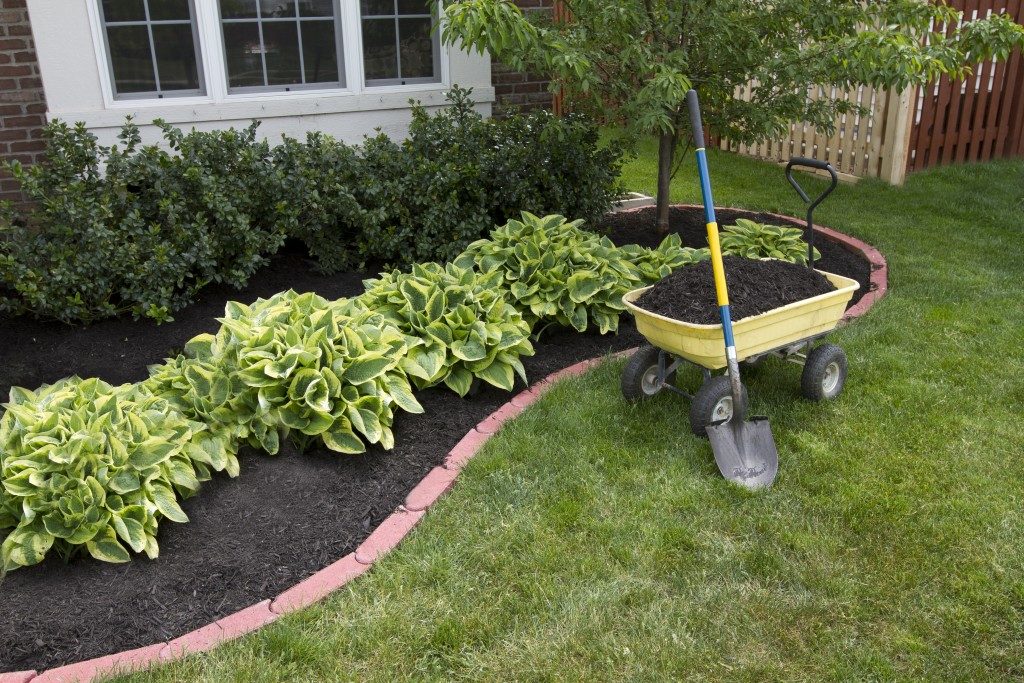Mulching is a gardening technique wherein the soil is covered with mulches to improve its condition. Mulches are usually organic materials like barks and leaves. In lawn care, mulching is done by double-cutting grass, a process wherein grass clippings are led back to the deck for re-cutting, then gets deposited back to the lawn as mulches.
In general, there are a lot of negative notions regarding mulching. However, experts have confirmed that mulching is a good lawn care practice for both commercial and residential landscapes. Furthermore, you’re given the advantage of reducing expenses on a variety of lawn care procedures such as the application of fertilizer, seeding, and the like when you regularly mulch your lawn. So to get a better understanding of what mulching has to offer, here is a comprehensive guide to mulching:
How Does Mulching Work?
The process of mulching starts with mowing grass. Instead of the grass clippings getting dropped off or collected, it is kept in the air just above the cutting blades. After some time, it drops down the cutting blade for re-cutting. After the second cutting, a vacuum forces the grass clippings downwards into the lawn to serve as compost.
How Often Should I Mulch?
In general, mulching can be done every week. However, it can be a great idea to alternate mowing and mulching to get the best result. Consider following this rule: Mulch twice, bag once. It’s also a good note to remember that you shouldn’t mulch after watering your lawn. Spreading grass clippings can be a challenge during these situations since wet grass clippings tend to stick to surfaces.
Benefits of Mulching
Organic materials like grass clippings are rich in nutrients. They can serve as compost for plants and grass alike. With the process of mulching, grass clippings are being recycled to serve as compost and fertilizer for the lawn. It makes the breaking down and decomposition of clippings easier as they are reduced to smaller pieces. In a way, it maximizes the benefits of nitrogen that these clippings produce instead of wasting them. This also gives the turf a steady supply of organic fertilizer instead of being exposed to chemical fertilizers sold in the market. Mulching also reduces tasks concerning lawn maintenance like raking, collecting grass clippings, and disseminating of fertilizer.
Wrong Impressions About Mulching

Some people say that mulching can cause thatch and moss. Is this true?
Thatch can be caused by numerous factors such as grass type, overwatering, and aggressive mowing, but never by mulching. Mulching indeed encourages clippings into the soil, but it does not accumulate like thatches for they break down and decompose quickly bringing back the nutrients to the earth. Mosses, on the other hand, are caused by poor soil conditions and lack of sunlight. It can be brought upon by poor lawn maintenance and rare lawn mowing.
Mulching does not cause or result in lawn problems like the ones mentioned above. On the contrary, it helps to prevent these kinds of things from invading your lawn. Mulching is a great way to maintain the length of your grass and improve the condition of your soil. Nonetheless, there are also risks that can be associated with improper mulching. Hence, it’s best to do your research first or ask a professional to mulch your lawn for you.
For what’s it worth, mulching offers many perks. More than the benefits that it provides in lawn care, it is also a good practice that helps in the reduction of household waste. Instead of discarding organic materials, you’re doing the environment a favor by recycling what could’ve been added waste to our landfills.


